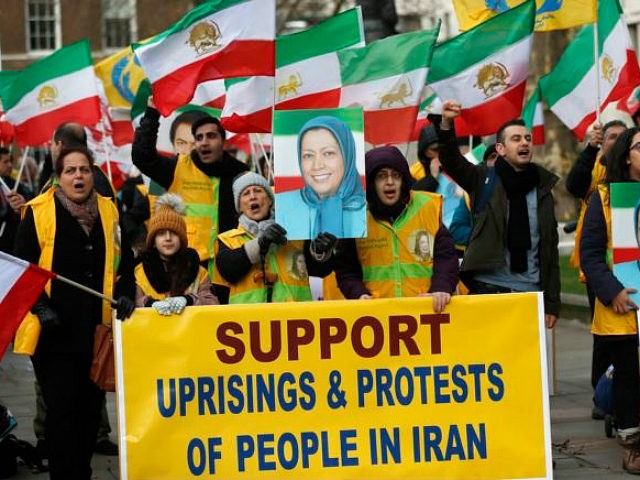Iranian Defense Minister Brigadier General Amir Hatami warned the United States that it would “bear the consequences” of allegedly orchestrating anti-regime protests in the country, a talking point propagated by Supreme Leader Ayatollah Khamenei.
Iranians have taken to the streets by the thousands since December 27, initially protesting skyrocketing food prices but rapidly shifting focus against the regime. Protesters have chanted “death to Khamenei” and called for an end to the regime’s extensive funding of terrorist organizations like Hezbollah.
Hatami, in remarks Wednesday, argued that the protests against the regime were not a response to decades of repression from the rogue Islamist regime, but a plot by the United States to destabilize the country.
“Iran has always proved that, as an independent country, it will not put up with such malicious conduct,” Hatami warned, according to Iran’s Mehr news agency. “What the Leader of the Islamic Revolution highlighted is the experience the U.S. has gone through several times. Whenever they caused any damaged to our country, they received our categorical comeback and had to bear the consequences and this time will be no exception.”
Khamenei had made similar threats a day before, telling an audience in Iran, “in these few days Iran suffered damage; this will not go unavenged.”
The United States has denied any involvement in the protests, but the Trump administration has vocally supported them. The State Department also announced it would take measures to help Iranians access social media following the shutdown of major online communications outlets.
Protests began in the last week of December in response to high food prices. Protesters—many shouting “death to Khamenei” and “death to Hezbollah”—blamed the economic downturn on the government’s mismanagement of funds, investing millions in wars in Yemen, Syria, Iraq, and elsewhere instead of using the windfall from the 2015 Iran nuclear deal to improve the lives of Iranians. The Iranian government has claimed that the protests have ended on multiple occasions and shut down Telegram and Whatsapp, two of the most popular social media apps in the country.
The social media shutdown has not only hindered the organizational capacity of dissidents, but further damaged the nation’s sinking economy. The Iranian Association for Online Commerce announced on Monday that “half a million online businesses” had suffered significant damage from the shutdown. Companies that rely on the internet to receive orders, ship products, and get paid had no way of conducting business following the shutdown.
A report from Radio Free Europe (RFE) on Wednesday cites Iranian protesters on the ground denying that the protests have ended. A teen protester identified as Hadi told the outlet, “nothing they do will decrease people’s anger and frustration.” He noted that the government appears to be preparing some temporary benefits, such as lowering food prices, to silence dissent, “but people are now very much aware.”
According to RFE, over 90 cities and towns in Iran have experienced large-scale protests against the regime since December. Last week, the U.S. State Department estimated that over 1,000 people have been arrested since the protests began for expressing political opinions in public. Reports this weekend suggested that Mahmoud Ahmadinejad, the president of Iran during the violent repression of protests in 2009, was among them. Ahmadinejad was barred from running for another presidential term during elections last year; Khamenei must approve all presidential candidates before they appear on the ballot.
In addition to those arrested, 22 people are known to have been killed during repression of protests. The latest known victim was 23-year-old student Sina Ghanbari, who had been arrested and placed in the notorious torture prison Evin, along with other protesters. Iranian authorities alleged that he committed suicide while in their custody, but did not offer any proof or explanation of how he died.

COMMENTS
Please let us know if you're having issues with commenting.